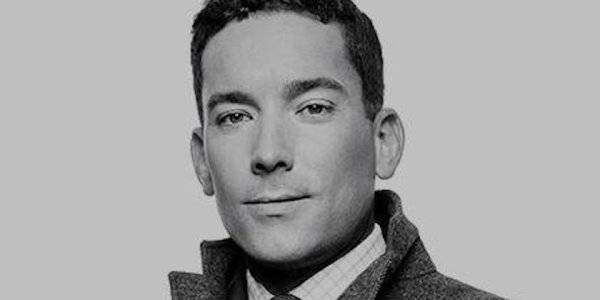

When some veterans transition to civilian life, they search for a job and seek to build careers that will use the skills they developed during their time in the military. While there are different strategies to translate military experience into a civilian resume, Byron Lambert took his own approach.
After serving in the Army for eight years, which included assignments to Germany and Saudi Arabia during Operation Desert Storm, he didn’t know what type of career he wanted next — he did know that he wanted it to be different.
“After long days of driving, maintaining trucks or performing other manual labor in the heat, I knew I was interested more in working with my mind in an air-conditioned office as opposed to working with my hands in the field,” Lambert said. He had read magazines like Kiplinger and Money, which made him consider a job in finance or investing, but beyond that, he had no clue what type of degree he needed or how to find his ideal job.
He began taking college classes while he was still active duty and completed his degree while in the Army Reserves, using the GI Bill and the Army College Fund to help pay for his education. Lambert credits his military leadership for being accommodating and allowing him to attend evening classes.
Byron is now a partner in international tax at PricewaterhouseCoopers LLP (PwC). Hirepurpose recently spoke with him about his journey from the Army to the world of professional services.
What made you seek a career in Tax?
“When I enrolled in college using the GI Bill, one of the first classes that I took was an introduction to accounting class. It was taught by a professor who had a side business doing tax returns for several individuals and small businesses. He would spend the first five to 10 minutes of each class talking about how he was able to save one of his clients on their taxes by doing advanced planning or by simply just taking advantage of the current tax laws that they may not have otherwise known. He shared a lot of interesting stories and was able to demonstrate the ability to add value for his clients based on his specialized knowledge of tax law. I was quickly sold on getting a degree in accounting, and more specifically focusing my career on tax. A career in Tax can be very rewarding, and there are multiple areas that one can specialize in depending on where your interests may fall (international, state and local, federal, research and development credits, transfer pricing, mergers & acquisitions, etc.).”
What were some of the challenges you faced when seeking employment after the military?
“I was what was referred to as a ‘nontraditional’ hire when I was interviewing with the larger accounting firms. I conveyed to the interviewers that I was the right person for the job based on strong academic performance, as well as demonstrating a strong work ethic and an ability to work as a team player, which was further enhanced by my military experience.”
Did your military experience help prepare you for your current role at PwC?
“I think the most valuable experiences that I received from my time in the military were understanding the value of teamwork and learning to apply it on a daily basis. The ability to team with others is probably the single most valuable skill that the military teaches its service members, starting with their very first day in the service. Focus on this attribute on your resume and during the interview process and it will serve you well!”
What other advice do you have to veterans who are considering a career in professional services? Are there valuable connections that they can make before leaving the military?
“I recommend reading as much as you can find and talking to professionals in your field of potential interest before diving into anything. After understanding the general work environment, what the day-to-day activities are, what it takes to be successful, etc., ask yourself if this is the type of career that you would be willing to commit to. I would also highly recommend taking a class through nonprofit organizations that assist transitioning veterans into the civilian workforce. You will learn essential skills like networking, resume writing, dressing for success and many others. These organizations have several corporate sponsors that attend each of the classes to meet and network with the students. A lot of valuable connections and insights into a number of professions can be found this way.”
PwC was named one of the top ten best employers for veterans in 2018.How is the firm committed to veterans?
“At PwC, we are committed to supporting our veteran and military communities. We understand the depth and breadth of experience that veterans bring to the firm. We have programs that support our veterans, active duty military personnel, and their families at work and in the community. Through our Veterans Affinity Network, we provide transition support and career development among other initiatives. As a firm, we’re proud to share the same values and commitment to leadership that our veterans bring to PwC.”
What have you enjoyed most about working at PwC?
“Working at PwC has allowed me the opportunity to work with some of the smartest people in the industry. The quality of our employees and clients are second to none, and there is not a day that goes by that I am not learning something new.”
About PwC
PricewaterhouseCoopers LLP (PwC US) helps clients meet the challenges and opportunities of the US marketplace in the areas of assurance, tax, and advisory with more than 250,000 people in over 158 countries across the PwC network. Learn more about a technology enabled career with PwC.